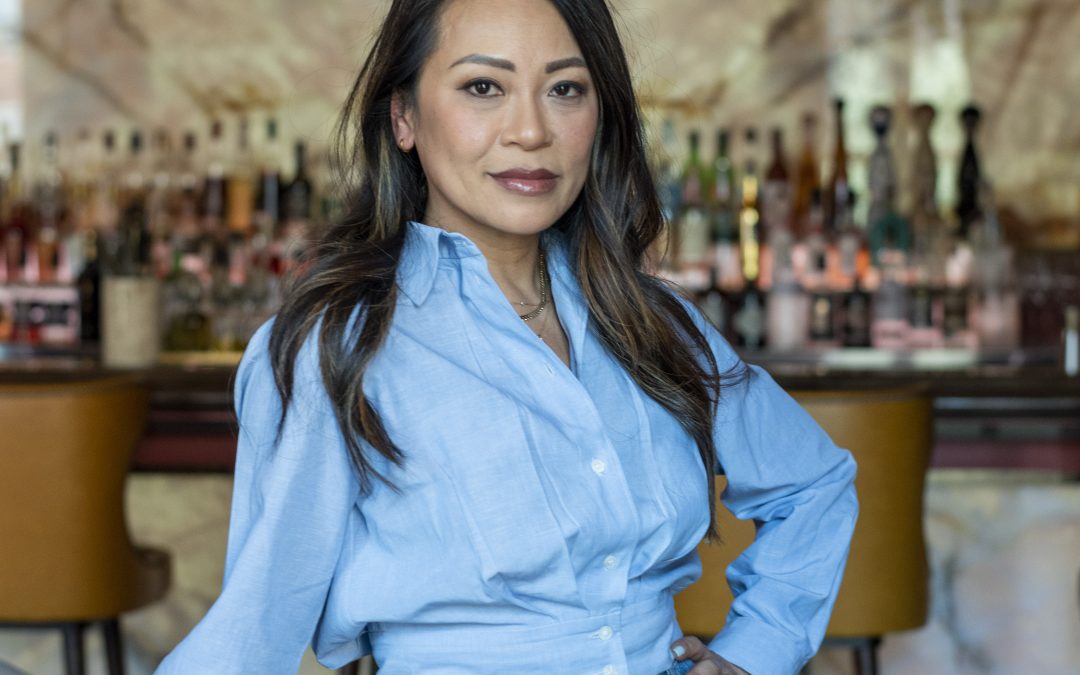As an Asian woman in a male-dominated industry, my path was sometimes a challenging one. The learning curve of becoming a restaurateur was not unlike previous professional experiences in which both my ethnicity and gender impacted how colleagues and investors perceived me. I had departed from a successful career in law, and also grew up in Louisiana as an immigrant during the mid 80s, so I was no stranger to racism and sexism in the workplace.
Once upon a time, like most things, franchising was a man’s business. Today, there are still countless societal and financial barriers that prevent women from finding success in the entrepreneurial space. It was once widely believed that women, especially minorities, were not equipped to handle the complexities of owning and operating a business, let alone multiple locations on a national scale. Self-founded and self-funded, I am the majority owner of Bun Mee backed by a few minority investors. Even though I am clearly at the helm— people still attach me to a man’s success by-proxy.
While building my franchise, I felt the weight of this most acutely when I visited construction sites and dealt with contractors and subcontractors. I felt dismissed or underestimated. Other times, a project manager on site would direct their comments and make eye contact only to my male colleagues as if I weren’t there. I would often be asked if I had a male business partner (or a husband partner) working alongside me because it was uncommon to see a sole female founder. I’ve dealt with subordinates who have spoken in condescending tones and innuendo towards me that I believe would not happen if I were male. I am also faced with ingrained subtle gender biases and stereotypes– women can’t be decisive decision makers, we are too emotional, or that we weren’t tough enough to handle a difficult industry dominated by men.
“Why don’t women just open their own businesses instead of complaining about male dominated industries?” many men ask. When you don’t see yourself represented in a particular industry, it makes it hard to find mentors and networking opportunities. This can go all the way back to high school, where your GPA, your school’s reputation and your financial situation determine which degree to pursue at what school, which college scouts visit your school, or if you could even afford to go to university at all.
In college, many student and professional organizations are dominated by long-standing family or social ties. Many Fortune 500 executives (approximately 80% as of 2021) have been members of historically white Greek-lettered fraternities, which can reinforce gendered and racial inequities in the U.S. professional world. Even the idea of “getting your foot in the door” as a woman can feel impossible, because factually speaking, it almost is. As of March 2024, only 2.2% of all venture capital went to women-owned businesses. That means that 98.8% of financing opportunities went to male CEOs and founders, who likely will award future financing and leadership opportunities to other men. Thus, the disparity between women in leadership and the overall wage gap continues in a vicious cycle.
In 2025, despite men being equally capable of being present and involved fathers, it still somehow falls to women to hold down a full-time job while also being a primary caretaker and homemaker. Even owning my own business doesn’t exempt me from this. Many people don’t realize I’m a single mom who wants to be as hands-on as possible in parenting my son. Balancing being an involved, attentive mom while making sure to stay heavily involved in my business is a huge challenge. I do not have the luxury of relying on a partner to help balance the caretaking responsibilities or the extra financial security of living in a joint-income household. Furthermore, single mothers tend to face harsher critiques and social stigma whereas single fathers are praised for “going the extra mile” to perform a duty that is not inherently ‘theirs’ to do. Due to the wage gap, single fathers tend to hold higher paying jobs and are more financially stable than single mothers.
Today, women are getting heavily involved in franchising and changing the industry for the better, often coming from sexist workplaces or feeling misunderstood as a female consumer. As with any industry, there is still a glass ceiling to shatter and prestigious opportunities that will be harder for me to obtain compared to those in white, male-dominated networks. The 9-5 work day, after all, was created to better suit a man’s natural circadian rhythm than a woman’s—true story! Today, there are many talented men who do not work well following a woman leader, or collaborate well with women in a team environment.
Franchising has created fantastic opportunities for women and minorities to build generational wealth while having control over their own business and source of income. As a busy single mom, this means I have far more flexibility in my schedule than I would if I were working for someone else.


